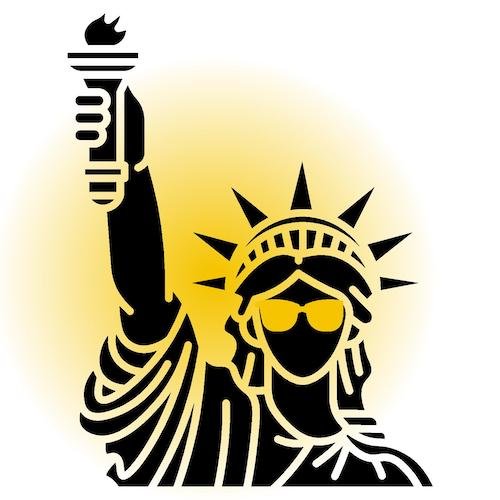Libertarianism, as a political philosophy, champions the cause of personal liberty and autonomy. In a world where political narratives are often dominated by discussions of collective rights and governmental responsibilities, libertarianism presents a unique standpoint. It emphasizes the importance of individual rights and the minimization of state influence. Given the growing interest in libertarian ideas, it’s crucial to dissect and understand its foundational principles.
The Primacy of Individual Liberty
At the heart of libertarianism lies the concept of individual liberty. This principle asserts that every person possesses the right to live their life as they choose, as long as they do not infringe upon the rights of others. Libertarians advocate for a society where individuals have the freedom to pursue their own goals and live by their values, without undue interference from the government or other individuals.
This emphasis on personal freedom extends beyond mere political freedom to include economic and social liberty as well. The libertarian view of individual rights is not just a political stance but a broader life philosophy, underscoring the importance of personal responsibility. By recognizing each individual’s right to make their own choices, libertarianism also acknowledges the responsibility that comes with those choices.
Limited Government and its Functions
Libertarianism posits that the role of government should be strictly limited. Libertarians argue that the primary function of the government is to protect the rights of its citizens – their life, liberty, and property. Any extension beyond these basic functions is viewed as an overreach and a threat to individual freedom.
In contrast to other political ideologies that advocate for a more expansive role for the state in societal affairs, libertarianism stands firm on the belief that a smaller, less intrusive government is better. This perspective stems from a fundamental mistrust of centralized power and a conviction that large governments often become inefficient, corrupt, and oppressive.
The Free Market and Economic Freedom
Economic freedom is a cornerstone of libertarian thought. Libertarians argue that a free-market economy, unhampered by excessive government intervention, is the best way to promote prosperity and innovation. In a free market, businesses and individuals are allowed to transact freely, with minimal government interference.
This belief in economic liberty extends to opposition against heavy taxation, substantial regulation of businesses, and large-scale government programs. The libertarian viewpoint is that when individuals are free to innovate and compete in the market, it leads to better products, more efficient services, and overall economic growth.
Non-Aggression Principle (NAP)
A key ethical component of libertarianism is the Non-Aggression Principle (NAP). This principle states that it is unethical to initiate force against another person or their property. Under the NAP, actions such as theft, violence, and fraud are not just illegal but morally wrong.
The NAP serves as a guiding principle for libertarian views on law, policy, and interpersonal relationships. It promotes a society where interactions are based on mutual consent and voluntary agreement. The ethical framework provided by the NAP reinforces the libertarian emphasis on personal responsibility and respect for individual rights.
The Importance of Property Rights
A central tenet of libertarian philosophy is the emphasis on property rights. Libertarians believe that the right to own property is a natural extension of the right to personal liberty. Property rights are not just about the ownership of physical goods or real estate; they also encompass intellectual property and self-ownership.
In a libertarian society, property rights are seen as essential for economic development and personal autonomy. They provide a framework within which individuals can freely exchange goods and services, leading to more prosperous and harmonious social interactions. Moreover, strong property rights are often seen as a deterrent to government overreach and a bulwark against arbitrary seizure or control of private assets.
Voluntaryism and Civil Society
Libertarianism places a strong emphasis on the concept of voluntaryism. This principle asserts that all forms of human association should be voluntary and consensual. In a libertarian society, interactions and transactions between individuals and groups occur on a voluntary basis, without coercion or compulsion by the state.
This approach highlights the importance of civil society – a sphere of social interaction separate from government and business, where individuals can engage in collective activities and organizations based on shared interests and values. Voluntary associations, charities, and community groups are seen as fundamental to a healthy society, providing a counterbalance to state power and fostering a sense of community and mutual aid.
Self-Ownership and Autonomy
The concept of self-ownership is pivotal in libertarian thought. It posits that individuals own themselves and have the sovereign authority over their own bodies and lives. This principle underpins the libertarian stance on a range of issues from personal freedom to economic activities.
Self-ownership translates into a high degree of personal autonomy. Libertarians argue that individuals should have the freedom to make choices about their lives, including what they do with their bodies, their time, and their talents. This autonomy, however, comes with the caveat that one’s actions should not infringe upon the rights of others, maintaining the balance between individual freedom and social harmony.
Conclusion
Libertarianism, with its focus on individual liberty, limited government, free-market economics, the Non-Aggression Principle, property rights, voluntaryism, and self-ownership, offers a distinct and coherent political philosophy. These principles converge to advocate for a society where individuals are empowered to lead their lives as they see fit, in a context of mutual respect and freedom. As the world grapples with complex social and economic challenges, the libertarian perspective provides a unique lens through which to consider solutions that prioritize individual rights and minimize state intervention.
Understanding these core principles is crucial for anyone interested in exploring the breadth and depth of libertarian thought. They not only define a political stance but also reflect a broader philosophy that values personal freedom, responsibility, and the inherent dignity of the individual.




